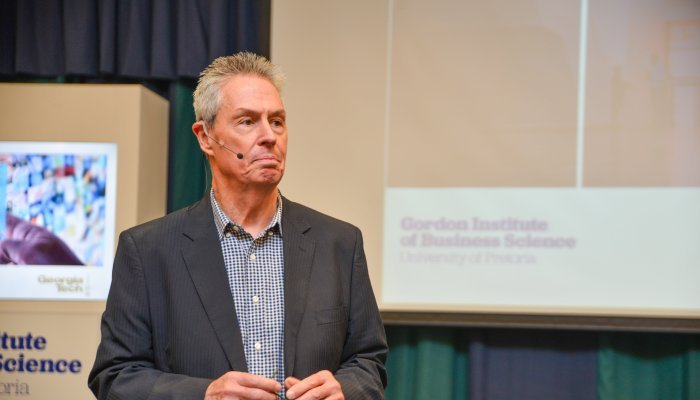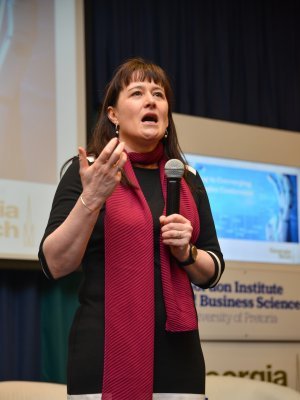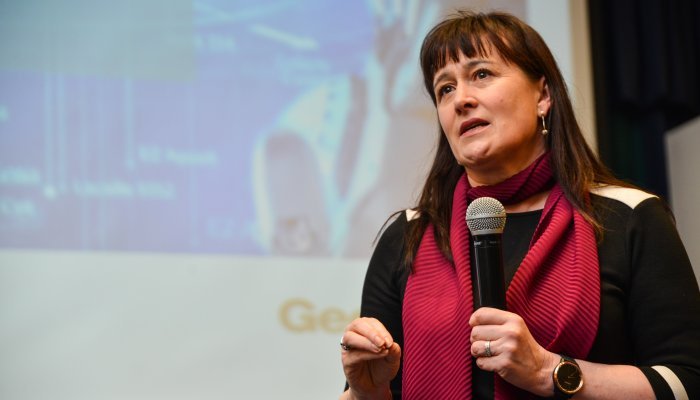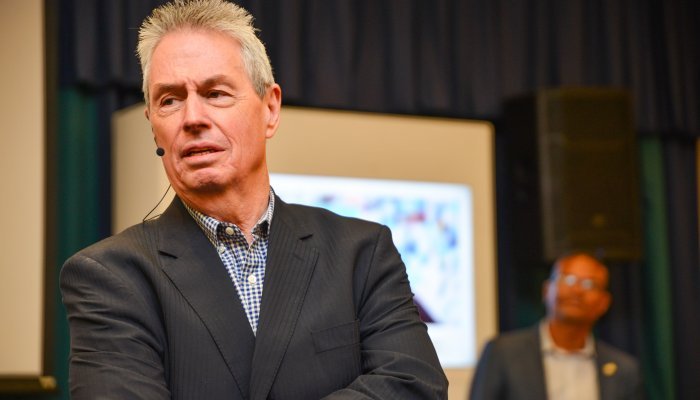One of the top research universities in the world (ranked 72nd globally by the QS World University Rankings 2020), Georgia Tech lent big names like Dr. Pascal Van Hentenryck and Dr. Soumen Ghosh to the event, while MIT political science professor, Dr. Kenneth Oye, proved an engaged, and engaging speaker and participant, keen to take away as much from this unique gathering as possible. For the record, MIT is ranked (for the eighth year in a row) as the world’s best university according to the QS rankings 2020.
The nugget which gave birth to this conference was born out of a discussion three years ago between GIBS Dean Professor Nicola Kleyn and a colleague at IMD business school in Lausanne, Switzerland, around the types of partnerships business schools would have to enter into in the future. At the time, Kleyn was struck by her colleague’s comment that the key would be collaboration between business schools and institutes of technology.
“If we look at the advancements in tech, and the amount of sense-making we, as business, have to do to try to incorporate this and adapt our business models, it requires phenomenal shifts,” Kleyn said, as she opened the conference. “This is not always easy because there is geographic distance for us, in the continent, from the hubs where these technologies are emanating. And we have a local context. So we cannot take plug-and-play models that worked in other countries and assume they are going to work here.”
"We need to be talking about the learnings and the implications of the Second and Third Industrial Revolutions, let alone the Fourth Industrial Revolution, and specific implications for sectors in Africa,” she said. “We have silos and pockets where we are having conversations about tech, often accompanied by pictures of robots and amazing things we all gasp at, but I am not sure we have really provided the space that gives permission to be somewhat naïve, and permission to not know everything.”
Conference host, GIBS international faculty and Georgia Tech lecturer, Lew Roberts, ultimately stepped in to join the dots and bring Atlanta and ‘The Big Bang Theory world’ of MIT to Johannesburg. “My intention for all of us,” observed Kleyn, “is to free ourselves up from our industries, to ask questions and share. Let’s see this as an opportunity to bridge the significant divide that exists not only in this country, but this continent.”
With conversations around a future tech-enabled world, the implications of robotics, thinking machines and synthetic neurobiology, big data, the Internet of things, machine learning, artificial intelligence, blockchain, energy solutions in Africa and the potential to revolutionise healthcare in Africa, the future world touched down at GIBS and left an indelible mark.








